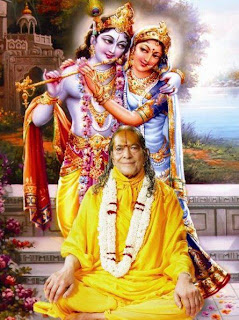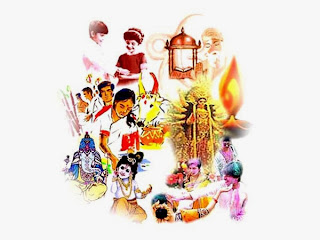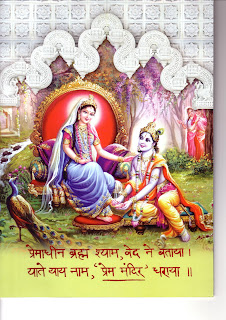Relationship of God and Guru
Relationship of God and Guru
In our scriptures and also in the world three kinds of situations are written about and described…
In our scriptures and also in the world three kinds of situations are written about and described. In some places it is written that God is the greatest. It is also written that God and Guru are equal. It is also written that the Guru is greater than God. An ordinary person, who reads the scriptures on his own cannot understand which of these three is correct and so he becomes confused. I am now going to reconcile these three.
These three statements are, in fact, correct. But they contradict each other – how then could they all be correct? In the scriptures it is written that God is the greatest, so this point is certainly correct (Shvetashvatara Upanishad 6/8, Gita, 11/45, Bhagwatam, 3/2/21 and 2/4/40).
All these verses say that there is no one, nor will there ever be anyone equal to God – so someone being greater than God is completely out of the question. The name for God is brahm, which means He is the greatest and He makes others great.
So the definition of God is that He is absolutely unlimited and the greatest (Taitariya Upanishad 2/1). Why is this? Listen to the reason. The Vedas say that all the individual souls are parts of Him. The individual souls are a power of God. Both maya and the souls are powers of God. Apart from these two, there is no third power that exists (PurushSukta, 3) This same verse is also found in the Chandogya Upanishad, 3/12/6, and the Tripavibhuti Narayana Upanishad, 4/1.
So, all the individual souls are parts of supreme God. A part cannot be equal to the whole. A part means a fraction. A grain of sand could never be equal to the entire earth. The Gita also explains the individual soul is a part or true fraction of God (Gita, 15/7, 9/18). The Subhal Upanishad (6/4), the Bhagwatam (3/50/38) and Ramayana declare the same.
So logically no one would even consider that a part is equal to the whole. They are opposite to each other in nature. Therefore, there is no one now, nor will there ever be, nor was there ever anyone equal to God.
But it is also said that God and Guru are equal. And when you practice devotion to God, it is said that you must practice exactly the same devotion to the Guru. The Vedas declare this (Shevtashvatar Upanishad 6/23). Why is this?
The highest form of devotion is considering God as our Beloved, and loving Him without any material desires. The only aim should be to make Him happy.
The Vedic scriptures have clearly established that the only way to attain God is through bhakti, devotion. Although, all the Descensions of God are equal in terms of Their power and divine bliss, the highest level of love is revealed in the loving pastimes of Shri Krishna. A soul can love God through different sentiments. We can love God by considering Him as our Master, and ourselves as His servants. This type of devotion is called dasya bhava. Similarly, we can love Him as our friend, son or our Beloved.
The highest form of devotion is considering God as our Beloved, and loving Him without any material desires. The only aim should be to make Him happy. This form of worship is called madhurya bhava, or devotion in the conjugal sentiment. We can receive this divine love of madhurya bhava by the grace of our Guru, after purification of our heart by sadhana, devotion. Hence, it is extremely essential for all spiritual aspirants to gain knowledge of the supreme form of love and about the grace of a Guru.
Guru tattva is knowledge about God-realised Saints. We will aim to learn what is revealed about guru tattva in the Vedas and these are not my personal views. Hence, you must listen with great sincerity and devotion, because the Vedas are the authentic word of God, and revered by all. The Vedas are eternal and flawless.
There are three types of personalities,
1. Soul or a human being - purush.
2. A God-realized personality or Saint - Mahatma or Mahapurush.
3. The Supreme Soul, God - Paramatma or Parampurush.
Of the three personalities, God is beyond maya, since it is His own power, and He rules over it.
māyāṁ tu prakṛitiṁ vidyānmāyinaṁ tu maheśhvaraṁ
God says, "This material energy, maya, is one of My powers and it is subordinate to Me". Maya in its original form is lifeless and has no power. Maya gets its energy and power from God, and we souls have been under the control of maya since eternity.
In our scriptures and also in the world three kinds of situations are written about and described…
In our scriptures and also in the world three kinds of situations are written about and described. In some places it is written that God is the greatest. It is also written that God and Guru are equal. It is also written that the Guru is greater than God. An ordinary person, who reads the scriptures on his own cannot understand which of these three is correct and so he becomes confused. I am now going to reconcile these three.
These three statements are, in fact, correct. But they contradict each other – how then could they all be correct? In the scriptures it is written that God is the greatest, so this point is certainly correct (Shvetashvatara Upanishad 6/8, Gita, 11/45, Bhagwatam, 3/2/21 and 2/4/40).
All these verses say that there is no one, nor will there ever be anyone equal to God – so someone being greater than God is completely out of the question. The name for God is brahm, which means He is the greatest and He makes others great.
So the definition of God is that He is absolutely unlimited and the greatest (Taitariya Upanishad 2/1). Why is this? Listen to the reason. The Vedas say that all the individual souls are parts of Him. The individual souls are a power of God. Both maya and the souls are powers of God. Apart from these two, there is no third power that exists (PurushSukta, 3) This same verse is also found in the Chandogya Upanishad, 3/12/6, and the Tripavibhuti Narayana Upanishad, 4/1.
So, all the individual souls are parts of supreme God. A part cannot be equal to the whole. A part means a fraction. A grain of sand could never be equal to the entire earth. The Gita also explains the individual soul is a part or true fraction of God (Gita, 15/7, 9/18). The Subhal Upanishad (6/4), the Bhagwatam (3/50/38) and Ramayana declare the same.
So logically no one would even consider that a part is equal to the whole. They are opposite to each other in nature. Therefore, there is no one now, nor will there ever be, nor was there ever anyone equal to God.
But it is also said that God and Guru are equal. And when you practice devotion to God, it is said that you must practice exactly the same devotion to the Guru. The Vedas declare this (Shevtashvatar Upanishad 6/23). Why is this?
The highest form of devotion is considering God as our Beloved, and loving Him without any material desires. The only aim should be to make Him happy.
The Vedic scriptures have clearly established that the only way to attain God is through bhakti, devotion. Although, all the Descensions of God are equal in terms of Their power and divine bliss, the highest level of love is revealed in the loving pastimes of Shri Krishna. A soul can love God through different sentiments. We can love God by considering Him as our Master, and ourselves as His servants. This type of devotion is called dasya bhava. Similarly, we can love Him as our friend, son or our Beloved.
The highest form of devotion is considering God as our Beloved, and loving Him without any material desires. The only aim should be to make Him happy. This form of worship is called madhurya bhava, or devotion in the conjugal sentiment. We can receive this divine love of madhurya bhava by the grace of our Guru, after purification of our heart by sadhana, devotion. Hence, it is extremely essential for all spiritual aspirants to gain knowledge of the supreme form of love and about the grace of a Guru.
Guru tattva is knowledge about God-realised Saints. We will aim to learn what is revealed about guru tattva in the Vedas and these are not my personal views. Hence, you must listen with great sincerity and devotion, because the Vedas are the authentic word of God, and revered by all. The Vedas are eternal and flawless.
There are three types of personalities,
1. Soul or a human being - purush.
2. A God-realized personality or Saint - Mahatma or Mahapurush.
3. The Supreme Soul, God - Paramatma or Parampurush.
Of the three personalities, God is beyond maya, since it is His own power, and He rules over it.
māyāṁ tu prakṛitiṁ vidyānmāyinaṁ tu maheśhvaraṁ
God says, "This material energy, maya, is one of My powers and it is subordinate to Me". Maya in its original form is lifeless and has no power. Maya gets its energy and power from God, and we souls have been under the control of maya since eternity.




Comments
Post a Comment